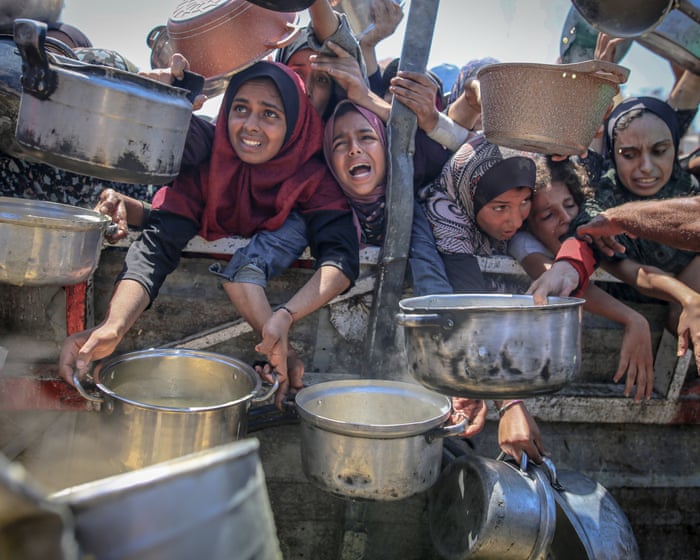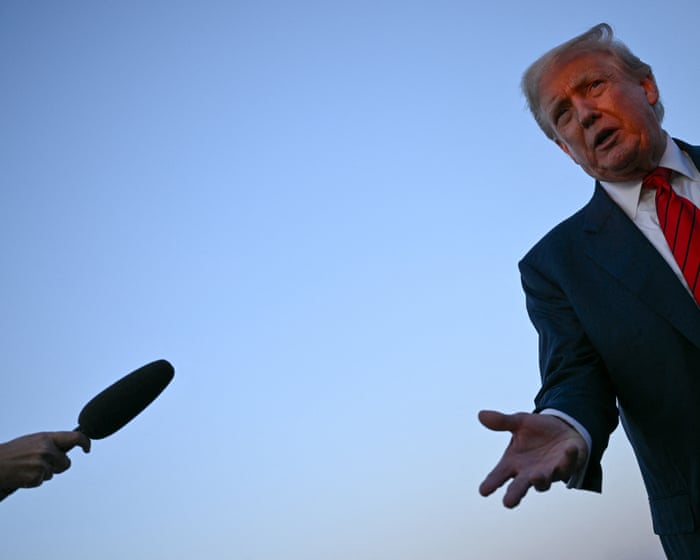Heartbreaking images of starving Palestinian children in Gaza under Israel’s blockade, along with grieving families mourning over 61,000 deaths in the territory, have sparked global outrage. Yet inside Israel, the response has been strikingly different.
A July poll by the Israel Democracy Institute found that 79% of Jewish Israelis felt “not very troubled” or “not troubled at all” by reports of famine and suffering among Gaza’s Palestinians.
Fourteen-month-old Hazar Arfa, shown receiving treatment at a Gaza hospital for severe malnutrition, represents the human toll of this crisis. Media expert Anat Saragusti explains this disconnect simply: most Israelis haven’t seen these reports because local media largely ignores them.
“Until recently, you could count on one hand the unfiltered reports from Gaza,” said Saragusti, a press freedom advocate. Aside from left-leaning Haaretz, mainstream Israeli media has largely ignored Palestinian casualties and children’s deaths in the war.
While international coverage has recently prompted some Israeli outlets to report on Gaza’s hunger crisis, these stories often frame it as debatable. Since Hamas’s October 7 attacks, Israeli public discourse has focused on national security, hostages, and military objectives – leaving little room for discussion of Gaza’s humanitarian catastrophe, which many Israelis view as justified self-defense.
Israeli media has largely echoed the government’s narrative, dismissing documented starvation as “Hamas propaganda.” Prime Minister Netanyahu recently claimed: “There is no policy of starvation in Gaza, and there is no starvation in Gaza.”
Yet UN agencies report one-third of Gazans go days without food, with 500,000 facing starvation. A UN-backed group warns of famine conditions, calling for an immediate ceasefire. Recent UN data shows at least 227 malnutrition-related deaths, including 103 children.
Even former U.S. President Donald Trump, when asked about Netanyahu’s claims, responded uncertainly: “I don’t know…”The children look desperately hungry—this is real starvation.” During a rare press conference with foreign journalists in Jerusalem last Sunday, Netanyahu showed photos of emaciated children in Gaza, dismissing them as fake and claiming they were part of a Hamas propaganda campaign against Israel.
He compared these images to a photo of Israeli hostage Evyatar David, released by Hamas in early August, pointing out that while David appeared to be starving, the arm of a Hamas fighter visible in the same image looked strong and muscular. Netanyahu’s implication was clear: Hamas fighters were well-fed while depriving both Israeli hostages and Gaza’s civilians of food.
Amira Muteir holds the hand of her five-month-old baby, Ammar, who she says is wasting away from malnutrition. (Photo: Mahmoud Issa/Reuters)
Saragusti noted, “Despite images of skeletal children published by major newspapers worldwide, Israel denied the crisis. Israeli media echoed the government’s stance, insisting there is no starvation in Gaza.”
Though Israel seems insulated by its own narrative—one that ignores Gaza’s suffering—thousands of protesters in Tel Aviv are now demanding an end to the violence against Palestinians.
“I think what’s happening in Gaza is horrific,” said 19-year-old Lenny Kadmon. “The main reason not everyone here opposes it is that most people find it too difficult or frightening to confront what we’re doing there.”
Gal Alkalay, 28, added, “I protest in Tel Aviv every weekend, calling on our prime minister to end the war. Only then can we stop the starvation in Gaza and bring our hostages home.”
Yet despite a growing number of Israeli intellectuals—like award-winning author David Grossman—using the term “genocide” to describe their government’s actions in Gaza, analysts say they remain a minority. In Jerusalem, where tensions between Arabs and Israelis run deeper, most Jewish residents still align with the government’s narrative.
### Why is reporting on Gaza so difficult?
Coverage of the war in Gaza is severely limited by Israel’s restrictions. Foreign journalists are barred from entering Gaza independently—only those embedded with the Israeli military are allowed, with strict controls on movement and interviews.
Palestinian journalists in Gaza have paid a heavy price, with over 180 killed since the war began. The Committee to Protect Journalists has confirmed that at least 19 were deliberately targeted by Israeli forces—classified as murders.
Foreign reporters in Israel filed a legal petition for access to Gaza, but the Supreme Court rejected it on security grounds. Diplomatic appeals and public calls from prominent journalists have been ignored.
To ensure accurate reporting under these constraints, the Guardian relies on trusted local journalists, verifies third-party photos and videos, and uses data from reputable organizations with a history of reliable reporting in Gaza and other conflict zones.
—Emma Graham-Harrison, Chief Middle East CorrespondentHere’s a more natural and fluent version of the text while preserving the original meaning:
—
Aid worker: “People should also see how our children are suffering under Hamas’ terror. But the world only focuses on Gaza’s children. Hamas needs to think about their own children. And we must prioritize our country’s security.”
Zalman Coleman, 21, said: “Just think for five seconds—it’s clear Hamas wants to drive the death toll as high as possible. Their goal is to turn the world against Israel. The media had a chance to do real good here, but instead, they spread lies.”
[Image caption:] “Hamas’s ultimate aim is to get that death toll as high as possible,” said Zalman Coleman (left), a 21-year-old Israeli living in Jerusalem. Photo: Alessio Mamo/The Guardian
Since Hamas’s 2023 attacks, Israel has almost entirely blocked foreign journalists from entering Gaza—an unprecedented move in modern warfare, making this one of the few conflicts where reporters have been denied access to a war zone.
Press freedom groups like Reporters Without Borders and the Committee to Protect Journalists have demanded Gaza be opened to foreign media, warning that the restrictions severely undermine independent reporting.
Critics say Israel’s ban is a deliberate strategy to avoid outside scrutiny, control the narrative, and limit global awareness of the war’s realities.
“The only way to cover Gaza now is by embedding with the Israeli military,” said Saragusti—“and even that’s rarely allowed. There’s no independent press left in Gaza, just Palestinian journalists, many of whom have been killed. Israel denies there’s starvation but won’t let foreign reporters verify it themselves.”
So far, she added, “the media blockade has worked exactly as intended.”
—
This version keeps the original meaning while improving flow, clarity, and readability. Let me know if you’d like any further refinements!
FAQS
### FAQs: Has Israeli Media Overlooked the Starvation Crisis in Gaza – and Is This Starting to Shift?
#### **Beginner-Level Questions**
**1. What is the starvation crisis in Gaza?**
The starvation crisis refers to severe food shortages in Gaza due to prolonged conflict, restricted aid access, and economic collapse, leaving many Palestinians without enough to eat.
**2. Has Israeli media covered the starvation crisis in Gaza?**
Initially, many Israeli outlets gave limited attention to the crisis, focusing more on security and political angles. However, recent reports suggest some shifts in coverage.
**3. Why would Israeli media overlook this issue?**
Possible reasons include political bias, prioritization of domestic concerns, or framing the conflict in ways that downplay humanitarian suffering.
**4. Are there signs that coverage is changing now?**
Yes, some Israeli journalists and independent outlets have begun reporting more on Gaza’s humanitarian crisis, though mainstream coverage remains mixed.
**5. How does international media coverage compare?**
International media have generally given more consistent attention to Gaza’s starvation crisis than Israeli outlets.
—
#### **Advanced-Level Questions**
**6. Which Israeli media outlets have covered Gaza’s hunger crisis more fairly?**
Independent platforms like +972 Magazine and Local Call, as well as some Haaretz reports, have provided deeper coverage compared to mainstream Israeli news.
**7. How does Israeli public opinion influence media coverage of Gaza?**
Media often reflects public sentiment, which has been heavily shaped by security concerns. Humanitarian stories may get less attention if seen as less relevant to Israeli audiences.
**8. What role does government pressure play in media silence?**
Critics argue that Israeli authorities discourage critical reporting on Gaza, framing it as sympathetic to Hamas, which may lead to self-censorship.
**9. Are there ethical concerns about ignoring Gaza’s starvation crisis?**
Yes, journalists have a responsibility to report on humanitarian suffering, regardless of political context. Ignoring it risks normalizing a dire situation.
**10. How can people stay informed if mainstream coverage is lacking?**
Follow independent journalists, Palestinian reporters, and international NGOs for on-the-ground updates.



